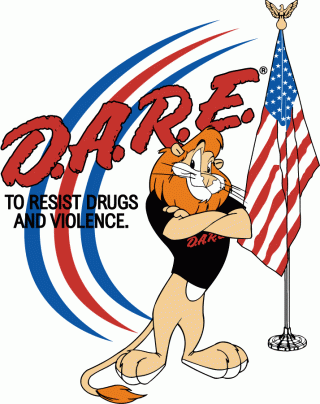Weymouth Police awarded Youth Opioid Prevention Grant to bring new D.A.R.E. program to middle schools

Weymouth, MA – Mayor Robert Hedlund announced today that the Weymouth Police Department has received $13,240 in grant funding to bring D.A.R.E. America’s substance-use prevention curriculum back to Weymouth’s two middle schools. The new D.A.R.E. curriculum, called keepin’ it REAL, aims to stem early adolescent use of alcohol, tobacco, and marijuana, and has applications for prescription drug and other substance uses. The grant was received through Attorney General Maura Healy’s Youth Opioid Prevention Grant Program, a new initiative designed in an attempt to turn back the tide of opioid addiction.
“Research tells us that 90 percent of all adults with a substance use disorder started using when they were under the age of 18, and half were under the age of 15,” stated Mayor Hedlund. “This grant will help educate our middle schoolers and provide them with the skills they need to resist substance use. Preventing the seeds of addiction from being sewn is the best strategy we have to break the opioid epidemic and protect the lives of our rising generation.”
Research shows that the prevalence of alcohol, marijuana, and prescription drug use increases rapidly from early to late adolescence and peaks during the transition to young adulthood. Effective substance-use education and prevention programming can, however, decrease the risk of addiction among young people. While Weymouth PD currently provides programs at the elementary and high school level, the Youth Opioid Prevention Grant will allow the Department to close the gap at the middle school level.
“I am thankful that we can partner with Attorney General Maura Healy and the Weymouth Public Schools on this important work,” stated Police Chief Richard Grimes. “Targeting young people with science-based prevention programing is critical to fighting and reversing the opioid scourge in the long term. We need to reach young people early and with repeated interventions if we want to stop addiction before it starts.”
Developed by prevention specialists at Penn State University and Arizona State University, D.A.R.E.’s keepin’ it REAL (kiR) curriculum is a 10-week course that builds communication and decision making skills through interactive lessons designed for middle schoolers. Lessons use real life stories from adolescents to demonstrate the four ways to say no – Reuse, Explain, Avoid, and Leave (hence the acronym) – and students rehearse these tactics through role play to develop their own responses to substance use situations.
Grant funds will enable the Weymouth PD to send three officers to an 80-hour training course on teaching the kiR curriculum. Since the curriculum’s design focuses on student-centered, hands-on learning activities, officers will be trained in facilitation skills and cooperative learning techniques rather than pure instructional and lectured-based delivery. Remaining grant funds will provide the curriculum materials to the more than 900 sixth and seventh graders who will participate in the prevention program next year. The Weymouth PD expects to continue the initiative beyond the two-year grant period.
“This grant allows us to expand on the great prevention work that Weymouth has been doing for several years now,” said Paul Williams, Weymouth’s Drug Free Communities Grant Coordinator. “It also highlights the exceptional, ongoing collaboration between Town departments, which Weymouth should be incredibly proud of. True prevention work can only occur through this type of townwide, all-in-this-together cooperation.”
The Weymouth Police Department was one of 41 organizations across the state to receive a Youth Opioid Prevention Grant for school-based prevention programing. The programs under this grant are funded by settlements the AG’s Office reached with CVS Pharmacy in September of 2016 and with Walgreens in January of 2017, totaling $700,000. Following the announcement of the grant program, the AG’s Office received 120 applications totaling nearly $4 million in requested funding from schools, law enforcement agencies, nonprofits, and community health organizations.

